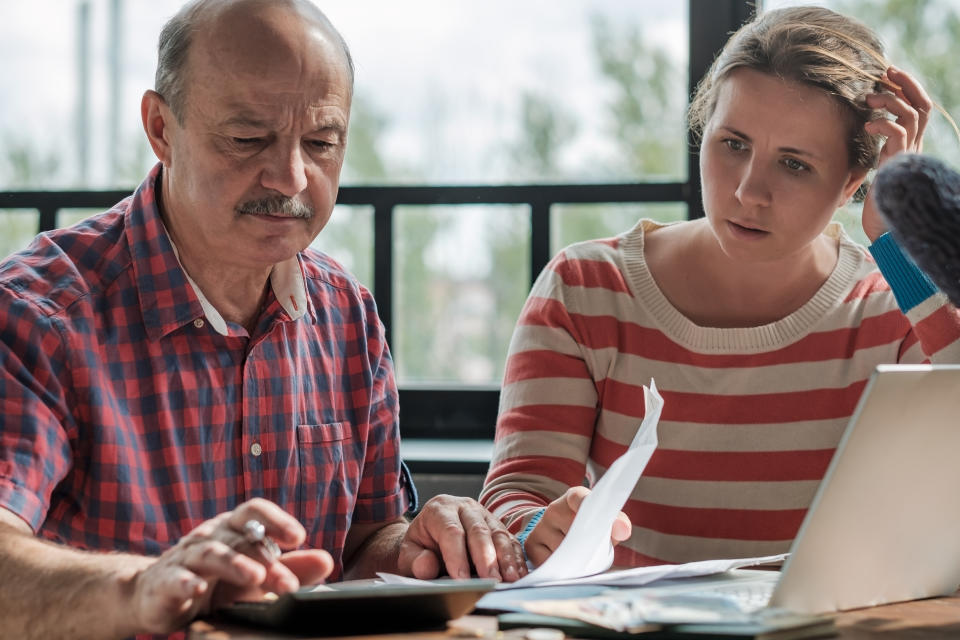Empty nesters welcoming children back during pandemic could hurt their finances
Empty-nesters who have opened their homes to their adult children during the coronavirus pandemic risk stretching their budgets too thin and threatening their retirement, financial experts warn.
As college closures have impacted more than 14 million students with more than 1,100 campuses fully closed, many have moved to their parent’s homes during the pandemic. Additionally, older, fully launched, adult children are also coming back to their childhood homes, according to anecdotal evidence, either to flee a hotbed of COVID-19 cases or because they lost income or a job.
Read more: Coronavirus: Should you move now that you can work from home?
But the new living arrangement may not always address the money strain that older parents may face, which could be detrimental to their financial security down the road.
“We have seen a huge uptick in traffic to our business since the beginning of March as people are struggling with finances,” said Allie Fleder, COO of Simplywise, a retirement consulting firm. “A lot of users having adult children home means they’re exceeding monthly expenses and tapping into their savings.”
They also have looked to home equity and personal loans to compensate for those additional expenses, she said.

‘I’ve seen a parent feel obligated or guilty’
Parents trimmed their retirement goals to make sure their children remain financially sound, even before the coronavirus pandemic arrived. More than 70% of American parents reported putting their children’s needs ahead of their own retirement savings goals, according to a 2018 study by Merrill Lynch, a financial firm, and Age Wave.
Read more: How to stay on track for early retirement despite the coronavirus pandemic
“There’s been times when I’ve seen a parent feel obligated or guilty and they go ahead and pay their child’s student loan payments or large credit bill,” said Chris Fundora, financial advisor at Traphagen CPAs and Wealth Advisors. “Even when they provide the child with a no-interest $20,000 loan, those funds rarely get paid in back in full or at all.”
Since the outbreak of COVID-19, nearly a fifth of Americans have reported cutting retirement contributions to help a family member, according to personal finance site Bankrate. But even agreeing to a loan, instead of an outright gift, doesn’t stop parents from digging into their savings, Fundora said.
“A loan makes parents feel better and the child feels it’s not a gift,” Fundora said. “But then it does end up becoming a gift because it’s awkward to pay back at a schedule.”
‘Drawing a written contract’
If you’re an empty nester and your adult child has moved back, it’s important to remain transparent about expenses, Fleder said. Create a financial contract that states boundaries between the parent and child.
“We’ve talked to users about drawing a written contract where the child helps to pay for meals and does chores,” Fleder said. “We’ve also [recommended] an exit clause that states when they plan to leave.”
Read more: How to ask your parents for a loan the right way
The adult child should put away portions of their unemployment check to help their parents with finances.
“If the child is not paying rent but collecting employment, there’s an additional $600 now that could put the family in a better financial position,” Fundora said, referring to the extra weekly unemployment bonus guaranteed by the CARES Act until the end of July.
Despite these arrangements, these temporary moves home may actually turn permanent anyway, during and after the pandemic, said Chris Briscoe, vice president at Girard, a wealth planning firm.
“I think the kids will stay longer at home because the parents will want them to,” he said, “or they’ll feel they’re saving money.”
Dhara is a reporter Yahoo Money and Cashay. Follow her on Twitter at @Dsinghx.
Read more:
Millennials are most likely to raid their retirement accounts during the pandemic
Half of Americans took from retirement savings or plan to amid pandemic, survey finds
Expert: New retirees ‘are going to have to adjust their expectations’
Read the latest financial and business news from Yahoo Finance and Yahoo Money
Follow Yahoo Finance on Twitter, Facebook, Instagram, Flipboard, SmartNews, LinkedIn, YouTube, and reddit.

 money
money 
